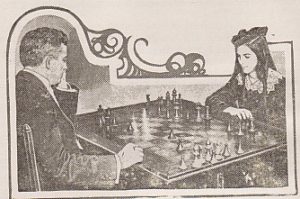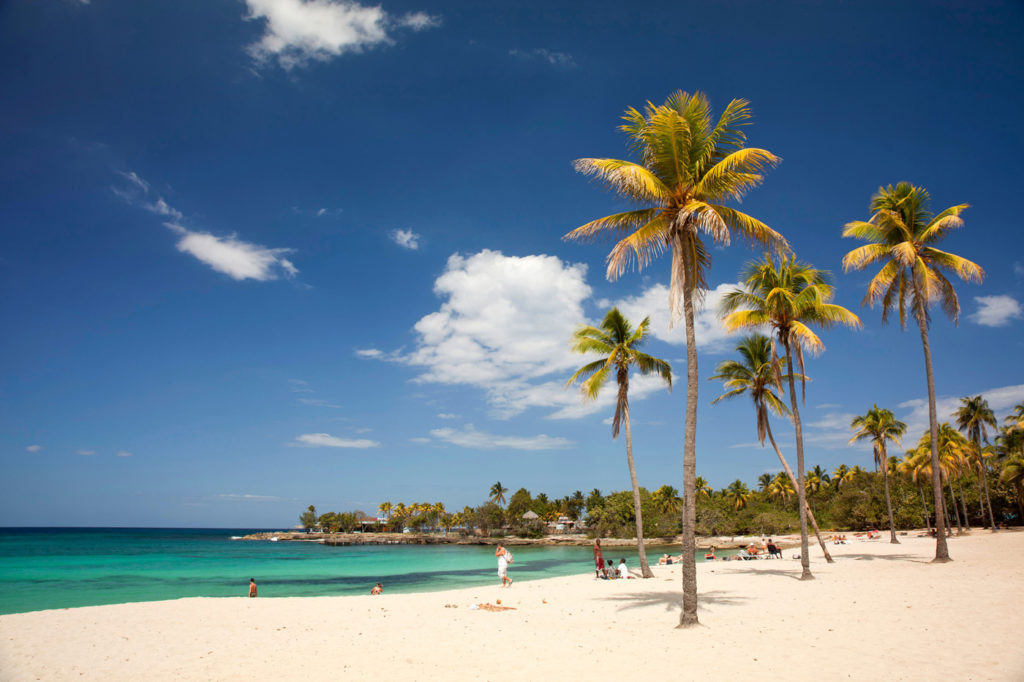The record of María Teresa Mora in national chess championships continues to be impregnable, despite the fact that in this sport, as in all of them, machismo has prevailed in a superlative way.
This habanera won the First School Chess Tournament of Cuba in 1914, just twelve years old, and the following year she won the Intercollegiate Championship of Havana, which earned her a name in the national press.
In 1917 the journalist specialized in chess, Jesús González Bayolo, published in the American Chess Bulletin his work under the title: “In Havana there is another prodigy.” And continues “… not satisfied with having given José Raúl Capablanca to the world , Havana draws attention to another chess prodigy in the person of the girl María Teresa Mora … ”
Maria Teresa was possessed of a prodigious intelligence and to this she added the preparation received from the hand of José Raúl Capablanca, the only person to whom this one granted her the privilege of being her student. They met three times, with favorable results for the disciple of two wins and a table, impressive statistics for a world champion in full form.
María Teresa applied for admission to the London Tournament in 1922 as part of the official roster of players, which was where she defeated the great Capablanca on 2 occasions and made a table in simultaneous games.
That year he obtained the fourth place in the Tournament of the Galician Capital Center and in 1919 he triumphed in the Bohemia Cup of the Habanero Chess Club, where the great majority of the best male players of that time participated.
In 1922 he won the National Championship of Cuba, at that time called Copa Dewar and where, with the exception of her, all the participants were men, so the event was described as “a milestone in the history of Cuban chess”, adding that in 1938 he conquered the first female title of his career. years of the death of María Teresa Mora Iturralde, the only female winner of the National Chess Championship, the first International Master of Ibero-America and the undefeated winner of the Cuban women’s title for more than two decades.
It participated in two world championships: in 1939 it obtained the seventh position, whereas in 1950 it obtained the tenth place and it defeated in one of its games the then world-wide champion Elizabetha Bikova. In that year she was awarded by the President of the International Chess Federation (FIDE), the category of International Master for her brilliant career and became the first Latin American woman with such distinction.
The female title kept him until his retirement in 1960 as no Cuban could defeat her in his 22 years as a champion.
María Teresa Mora Iturralde died on October 3, 1980, and an event that takes her name is held every year in the capital, whose goal is to promote the practice of science play in the nation, especially in youth.
MARÍA TERESA MORA: DISCIPULA DE JOSÉ RAÚL CAPABLANCA, CAMPEONA DE AJEDREZ CUBANA.
El récord de María Teresa Mora en campeonatos nacionales de ajedrez continúa siendo inexpugnable, a pesar de que en ese deporte, como en todos, ha imperado el machismo en forma superlativa.
Esta habanera ganó el Primer Torneo Escolar de Ajedrez de Cuba en 1914, con sólo doce años de edad, y al año siguiente conquistó el Campeonato Intercolegial de La Habana, lo que le valió para hacerse un nombre en la prensa nacional.
En 1917 el periodista especializado en ajedrez, Jesús González Bayolo, publicó en el American Chess Bulletin su trabajo bajo el título: “En La Habana hay otro prodigio.” y continúa “…no contenta con haber dado a José Raúl Capablanca al mundo, La Habana llama su atención a otro prodigio del ajedrez en la persona de la niña María Teresa Mora…”
María Teresa era poseedora de una inteligencia prodigiosa y a ello sumó la preparación recibida de la mano de José Raúl Capablanca, la única persona a quien éste le concedió el privilegio de ser su alumna. Se enfrentaron en tres ocasiones, con resultados favorables para la discípula de dos partidas ganadas y una tabla, estadística impresionante para un campeón mundial en plenitud de formas.
María Teresa solicito su admisión en el Torneo de Londres de 1922 como parte de la nómina oficial de jugadores, que fue donde derrotó al gran Capablanca en 2 ocasiones e hizo una tabla en partidas de simultáneas.
Ese año obtuvo la cuarta plaza en el Torneo del Centro Gallego Capitalino y en 1919 triunfó en la Copa Bohemia del Club de Ajedrez Habanero, donde participaron la gran mayoría de los mejores jugadores masculinos de entonces.
En 1922 ganó el Campeonato Nacional de Cuba, por aquel entonces llamada Copa Dewar y donde a excepción de ella, todos los participantes eran hombres, por lo que se calificó el hecho como “un hito en la historia del ajedrez cubano”, y añadió que en 1938 conquistó el primer título femenino de su carrera. años del fallecimiento de María Teresa Mora Iturralde, única mujer ganadora del Campeonato Nacional de Ajedrez, primera Maestra Internacional de Iberoamérica y vencedora invicta, durante más de dos décadas, del título femenino cubano.
Participó en dos campeonatos mundiales: en 1939 obtuvo el séptimo puesto, mientras que en 1950 obtuvo el décimo lugar y derrotó en una de sus partidas a la entonces campeona mundial Elizabetha Bikova. En ese año le fue otorgado por el presidente de la Federación Internacional de Ajedrez (FIDE), la categoría de Maestra Internacional por su brillante trayectoria y se convirtió en la primera mujer latinoamericana con tal distinción.
El título femenino lo mantuvo hasta su retiro en 1960 ya que ninguna cubana pudo derrotarla en sus 22 años de campeona.
María Teresa Mora Iturralde falleció el 3 de octubre de 1980 y cada año se celebra en la capital un evento que lleva su nombre, y cuyo objetivo es promover la práctica del juego ciencia en la nación, especialmente en la juventud.
Agencies/MemoriasCubanas/Carlos Rodríguez/ Internet Photos/ Arnoldo Varona/ TheCubanHistory.com
THE CUBAN HISTORY, HOLLYWOOD.



 > MARÍA TERESA MORA: Cuban Chess Master, José Raúl Capablanca disciple. (Photos). <> MARIA TERESA MORA: Campeona de Ajedrez Cubana, Discipula de José Raúl Capablanca. (Fotos).
> MARÍA TERESA MORA: Cuban Chess Master, José Raúl Capablanca disciple. (Photos). <> MARIA TERESA MORA: Campeona de Ajedrez Cubana, Discipula de José Raúl Capablanca. (Fotos).






